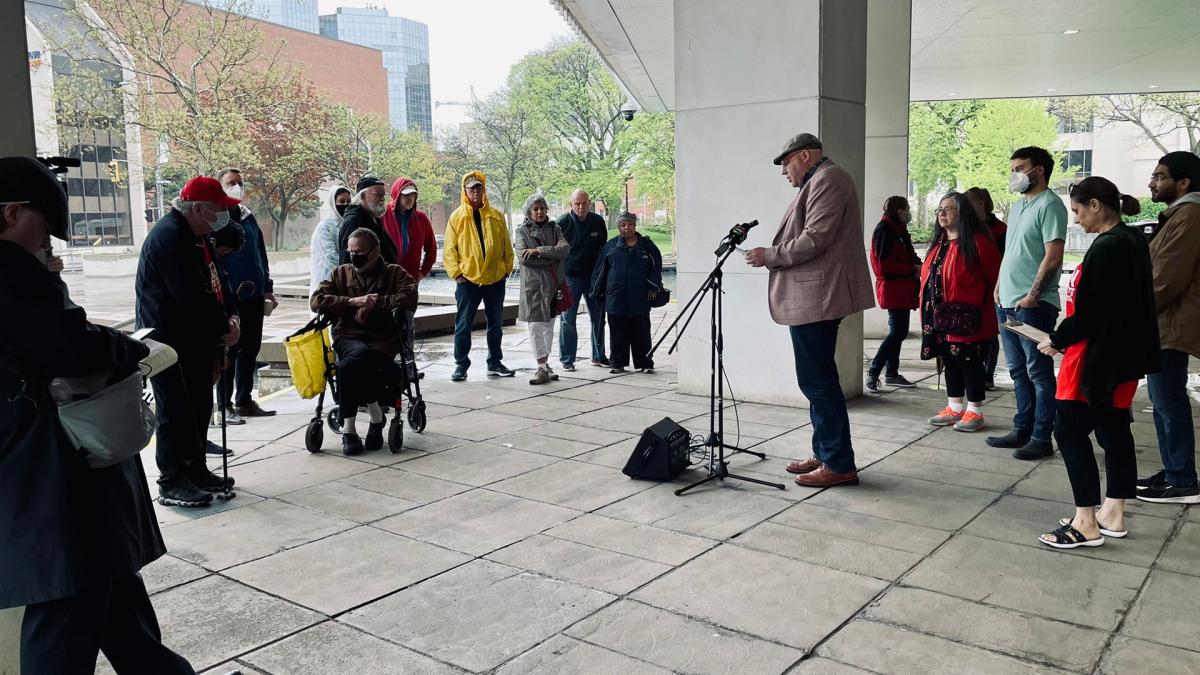Delegates say quick action is needed by the city to ensure affordable housing is built along Hamilton’s future light rail transit (LRT) corridor.

Members of Hamilton ACORN, Environment Hamilton and the Hamilton Community Benefits Network, all stated their case before the LRT subcommittee on Monday.
The advocacy groups also held a media conference in the city hall forecourt to outline their demands.
“We know the LRT will be a success for the city, but it’s the type of success that we need to choose,” said Ian Borsuk of Environment Hamilton.

Get daily National news
“Ultimately, we need to be choosing an LRT that will service not just new residents that are moving in, paying significantly more in rent and for condos, but can be servicing people who are currently living in their neighbourhoods.”
The groups are calling on the city to approve a strong “inclusionary zoning” policy, that would require developers to include affordable housing in their construction projects.
Karl Andrus, representing the Hamilton Community Benefits Network, said there’s no time to waste because of the impacts of gentrification.
“Every moment you delay, more land is being procured along the corridor by developers, more permits are issued, and less of the booming development going on around us could be subjected to this tool,” Andrus said.
Early construction of Hamilton LRT, including the relocating of watermains, is expected to begin within the next year along a 14-kilometre corridor that runs east-west across the lower city from McMaster University and Eastgate Square.
The provincial and federal governments have committed $3.4 billion to build the rapid transit line. The city will be responsible for operating costs.
Metrolinx, the province’s transportation agency, has purchased 90 properties along the route to clear the way for construction. About 30 of those structures have been demolished.













Comments
Want to discuss? Please read our Commenting Policy first.